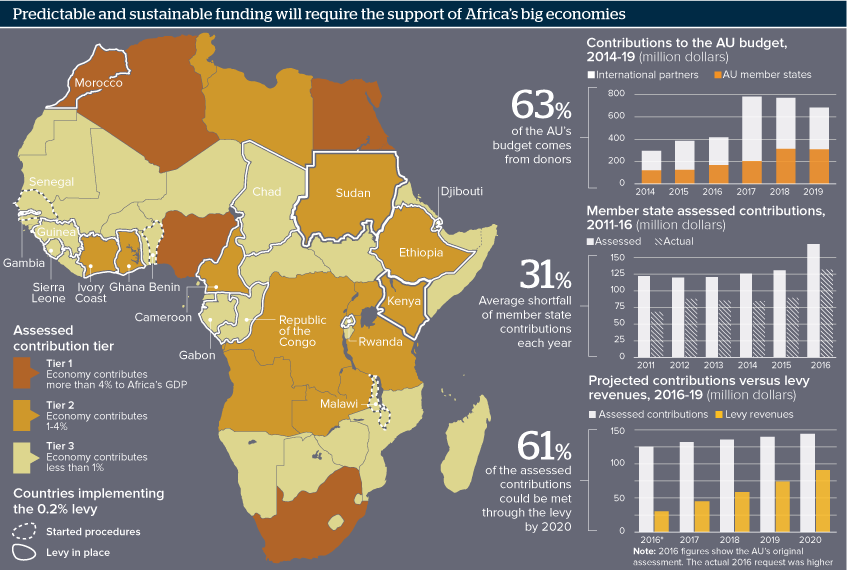African Union will struggle to close funding gap
The African Union has a plan for financial self-reliance, but implementation is lagging behind aspiration
Source: African Union
Outlook
Aiming to boost financial autonomy, reduce reliance on donors and mitigate persistent shortfalls in member state contributions, African Union (AU) member states agreed in July 2016 to implement a 0.2% levy on eligible imported goods to finance their contributions to the AU budget.
However, two years on, only 15 of 55 members are implementing the levy. Only one is a ‘tier one’ country (economies worth more than 4% of Africa’s GDP), which should collectively provide 48% of member state contributions.
Only one country (Ghana) has commenced implementation in 2018, while other member states (particularly ‘tier one’ economies) continue to question the levy’s practicality, legality and scope -- and the AU’s capacity to use the funds effectively.
Impacts
- Without the backing of the AU’s five big economies (Algeria, Egypt, Morocco, Nigeria and South Africa), the scheme may fail to deliver.
- Financial autonomy would boost political independence.
- Even with full implementation, the AU will remain reliant on donors, especially for costly peace operations.
- The EU’s African Peace Facility, which funds AU peace operations, must be renegotiated before the Contonou accord expires in 2020.
- Questions of legal compatibility with global trade rules will ease if the Continental Free Trade Area is established.
See also
- African Union faces high expectations but low capacity - Feb 23, 2023
- The African Union faces major reform challenges - Feb 14, 2022
- Congo’s president faces challenging AU chairmanship - Mar 17, 2021
- African Union Peace Fund will face uphill battle - Nov 22, 2018
- Implementation may hamper Africa free trade area plans - Feb 26, 2018
- More graphic analysis
